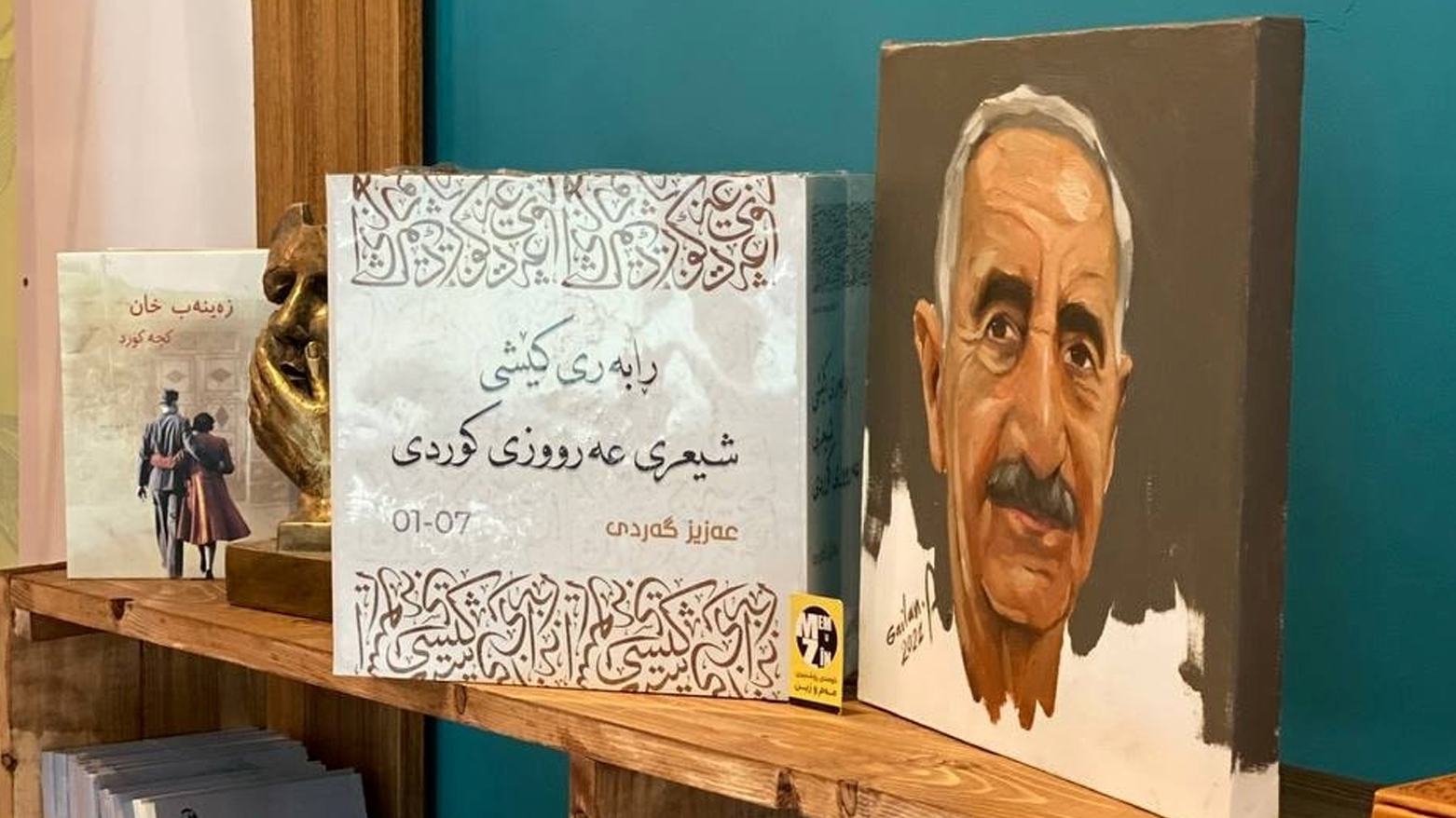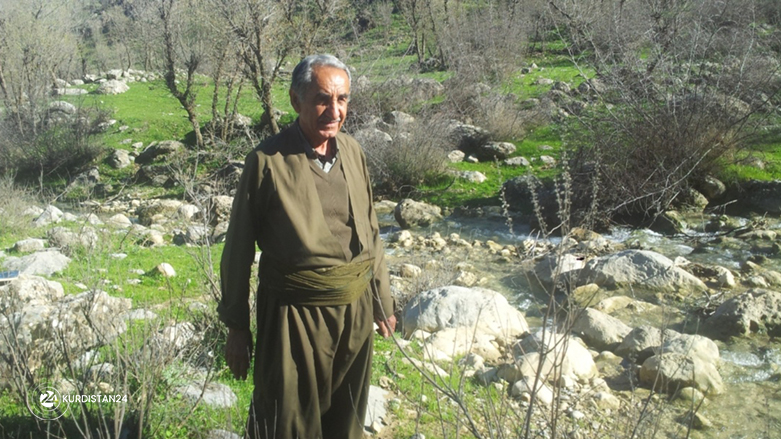Aziz Gardi’s Rare Library Awaits Transformation into a Cultural Landmark
The nephew of the late Kurdish scholar Aziz Gardi purchased his 18,514-book library at auction and has offered it to the KRG on the condition it becomes a public museum in Gardi's name, preserving the vast cultural treasure for the nation.

ERBIL (Kurdistan24) – The vast and precious personal library of the late Dr. Aziz Gardi, one of the most prolific and influential figures in modern Kurdish literature and translation, has been saved from potential dispersal after being purchased at auction by his nephew, who has now formally offered the entire collection to the Kurdistan Regional Government on the condition that it be transformed into a public museum bearing the scholar’s name.
This pivotal move ensures that a lifetime of intellectual pursuit, comprising over 20,000 volumes, could become a permanent part of the nation's public heritage.
Heja Bakr, the nephew of the celebrated writer, announced on Tuesday that he had successfully acquired his uncle's library at a public auction held on Sunday, August 17, for a final price of 136 million Iraqi dinars.
The collection, a testament to Dr. Gardi's immense scholarly range, consists of 18,514 books and 1,938 magazines.
In an interview with the Kurdistan24 website, Mr. Bakr explained the family's motivation for securing the collection. "We wanted to oversee and protect it ourselves," he said. "Other people were also interested in buying the library, but our family did not agree to sell it to others."
With the invaluable collection now secured, Mr. Bakr stressed his readiness to donate it as a public asset, provided it is properly honored and made accessible. He is prepared to hand over the library to the Kurdistan Regional Government with the specific condition that it is converted into a public property or a museum dedicated to Dr. Aziz Gardi's legacy.
The rationale, he explained, is simple and profound: "Aziz Gardi belongs to all the people of the Kurdistan Region."
This development has been met with interest from local cultural authorities.
Sardar Sabir, the Director of the Culture and Arts Department in Bahrka, where Dr. Gardi lived, noted that previous efforts had been made to turn the scholar's house into the "Aziz Gardi House for Literature and Culture."
While that project did not come to fruition due to certain issues, Mr. Sabir expressed his readiness to assist with the library initiative if the family agrees, signaling potential government collaboration in realizing the nephew's vision.
Dr. Aziz Gardi, who passed away on June 6, 2022, at the age of 75, was a towering figure in Kurdish academia and letters.

A professor in the Kurdish Language Department at Salahaddin University, he was a writer and translator of extraordinary ability, possessing complete mastery of multiple languages including Kurdish (in its Kurmanji, Sorani, and Hawrami dialects), French, English, Arabic, and Persian.
Having authored or translated over 200 works, he is widely recognized as one of the main pillars of contemporary Kurdish literature.
Born Aziz Abdullah Ahmed in 1947, Professor Gardi's life was a testament to a relentless passion for knowledge.
After settling in Erbil in 1968, he dedicated himself to self-study, immersing himself in the collection of the public library and meticulously filling notebooks with his observations on rhetoric and classical prosody.
This intense period of study resulted in his first major work, a three-volume text on rhetoric published in the early 1970s, which was followed by a continuous stream of foundational books on comparative literature, Kurdish prose, and classical poetry. His book on Kurdish prosody remains the ultimate reference on the subject.
After obtaining his doctorate in 1999, Dr. Gardi served as a university lecturer but eventually resigned from his post to avoid distractions from his monumental translation projects.
He secluded himself in his home in the town of Bahrka, a suburb of Erbil, dedicating his remaining years entirely to his work. Unmarried and completely devoted to his craft, he continued to produce, pearl by pearl, literary gems for the Kurdish language until his passing, leaving behind a legacy that his family now seeks to preserve for all of Kurdistan.